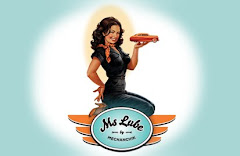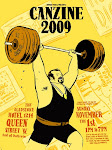
In real life, things are often impossible to plan. Impossible to contrive. Moments can be awkward, comical, uncomfortable, imperfect, lopsided, fleeting, impractical, ill-timed, chaotic, and somehow everything still works out.
Dan in Real Life is a film that so completely embodies this concept, of the many beautiful, unplanned scenarios that unravel in our lives and carry us where we need to go, regardless of how random or untimely things may seem. Basically we have no control over where life will take us, and its best to try and keep an open mind, even when things get bumpy, or we happen to take a wrong turn.
Dan, played by the ever so awkwardly amusing Steve Carell, is a widower and a single father of three daughters. His column, entitled, Dan in Real Life, is an advice feature where he shares guidance and moral reflections about raising children as a single parent. We enter Dan’s life 4 years after the passing of his wife, as he and his daughters are embarking on their yearly trip to the family cottage in Rhode Island. Only on this trip, everything unexpected will happen.
Something remarkable about this movie is the effortless sequences that portray the rituals which unfold in a household of 3 young women and a father who struggles to hold everything together on his own. A simple moment, for example, where he folds their clothes, and upon finding a thong, dutifully enquires who it belongs to. In another shot he is constructing sandwiches for all three girls, a

nd draws a secret smiley face on the inside of one with honey. He then meticulously slices off the crusts before packing them away. It is those very real, very relatable moments of detail and humanity that truly makes this film an open portrayal of life.
Even the different relationship that Dan has with each daughter is relatable in every banter of conversation, every look, and every inevitable battle. With each moment shared between the small family unit we witness how both parties can overlook the point of view of the other. Jane, the eldest, wants to learn to drive, but Dan refuses to permit it. When she argues her point he replies, “But if I let you, you might not live.”
Meanwhile Cara, the second eldest, claims to have fallen in love with a boy, and being dragged away when the family leaves on vacation causes nothing short of a chaotic uproar. When daughter and father duel, Dan argues that you can’t know that you love someone in 3 days, as Clara repeats her mantra, “I love him, I love him, I love him”, as the car pulls away from her beloved.
Once Dan and his mutinous female crew reach the cottage, Dan’s life takes a sudden turn, which becomes enhanced by touching family hijinks and a range of emotional scenarios.
He meets a whimsical, witty and candid woman at a bookstore, who happens to be looking for something to make her laugh, and finds Dan, who she mistakes for an employee. Unfortunately, the woman who he has made a completely unplanned, unorthodox, yet surp

risingly poignant connection with, is his brother’s (Dane Cook) new girlfriend, Marie. This sought after woman, who Dan’s entire family becomes enamored of, is played by the gem of an actress, Juliette Binoche, who’s mischievous, daring, and carefree performance is completely disarming. She walks into Dan’s life like a breath of fresh air, leaving him completely befuddled, vulnerable and adorably distraught by his newfound feelings for a woman who he cannot pursue.
He accidentally ends up explaining his intense feelings to his daughter, Clara, when humoring her young love. “Is it frustrating that you can't be with this person? That there's something keeping you apart? That there's something about this person that you can connect with? And whenever you're near this person, you don't know what to say, and you say everything that's in your mind and in your heart, and you know that if you could just be together, that this person would help you become the best possible version of yourself?”
I think that Dan’s especially precocious vulnerability makes him so relatable, and such a living, breathing character, who is both hopefully uplifted at moments, despairingly alone and amusingly confused as to what he should do next. His character is a near perfect portrayal of what we all encounter in life, when things don’t work out the way we plan, when we fear what others will think, question our abilities, what is right and wrong, and what we are meant for. Floundering, lovesick, Dan struggles to hide his feelings, yet finds that despite all the obstacles, what is meant to be will be. Love is messy, as his mother wisely states, and in the end, “There's rightness in our wrongness.”
When compared to other romantic comedies where siblings or friends love the same woman and complications ensue, I found that all others were left in the dust. This story, written by Pierce Gardner, and largely based on his own experiences with his family during summers spent together is so refreshingly natural, warm, intimate, playful, and absorbingly genuine, that it draws you in, effortlessly.

It feels like an authentic family, where the kids do eat in a separate room, at a small crowded table, screaming and laughing hysterically, while the adults conduct long conversations in the dining room. Where games of charades, pantomimes and crosswords are so competitive, good natured and hysterical all at once, and the boys and the girls end up duking it out for bragging rights. Where there are so many people fighting for the bathrooms, crowding the laundry room or trying to find one silent nook in which to talk, rest, gossip or simply collapse on a mattress in utter melancholy.
The warmth and the reality of family bonding which is so vividly present in this movie made it both endearing and surprisingly nostalgic, of times spent with relatives where tender moments ensued, or when you felt all alone in a crowded house because you were so absorbed in your own thoughts. The acting, the characters and the moments of humour were so natural and flowed together well, and never in an over the top or phoney way, as some comedies tend to perform.
Another element of this film which added to its relaxed and playful personality was the music, which was performed by
Sondre Lerche, a Norwegian musician who combines jazz, pop and Brazilian folk with his own raw, melodic, ever transitioning sound. Both uplifting, loose, raw, dynamic and tranquil, his sound puts me in the mind of lazy hot nights, days frolicking in the lake, cool drinks, games of volleyball, every shade of woodland green imaginable and a sense of carefree serenity that accompanies the blissful nature of summer.
Director Peter Hedges was drawn to his music and handpicked Lerche as the distinct sound of
Dan in Real Life. Hedges and Lerche also collaborated with the actors to create an uncluttered, under produced and natural soundtrack for the film. They wanted music to be used more sparingly than the usual Hollywood soundtrack, and for songs to accentuate the characters and the mood accurately. One especially endearing scene which Lerche helped to coordinate is when Dane Cook’s character, Mitch, serenades Marie, accompanied by Dan. They perform, “Let my love open the door” at a family talent show, and Dan ends up transforming the tune into a ballad at the end, which he sings for Marie alone.
Deep down at its heart, this film portrays human connections and a frank, accurate understanding of the relationships that unfold unexpectedly, but need no explanation. Dan in Real Life embraces life, shows us how we always have choices, whether they are difficult or easy, but they need to be made for our own happiness, which can’t always be planned, but is definitely real.
 “Here are some of the signs that your guy is about to give you the axe.”
“Here are some of the signs that your guy is about to give you the axe.”
 Narrator: “This is a story about a man named Harold Crick and his wristwatch.”
Narrator: “This is a story about a man named Harold Crick and his wristwatch.”

 n’t a product of his insanity.
n’t a product of his insanity. 
 Harold: ‘Miss Pascal, I've been odd. I know I've been odd, and I know that there are many forces at work telling me that time is literally, that I should bring these down here to you. But I brought these for you because... I want you.’
Harold: ‘Miss Pascal, I've been odd. I know I've been odd, and I know that there are many forces at work telling me that time is literally, that I should bring these down here to you. But I brought these for you because... I want you.’



 In an act of rebellion, Hatsumi begins to date Asuza, despite feeling somewhat unworthy to be in the presence of such a disarming heartthrob. But the boy who wins over everyone is not what he seems. His true colors emerge when he reveals that his family left the company complex years ago because of an affair that he believes Hatsumi’s father had with his mother, and then abandoned her when she became ill. His return has been fuelled by his desire to get revenge on Hatsumi, who he has chosen to punish for her father’s indiscretion.
In an act of rebellion, Hatsumi begins to date Asuza, despite feeling somewhat unworthy to be in the presence of such a disarming heartthrob. But the boy who wins over everyone is not what he seems. His true colors emerge when he reveals that his family left the company complex years ago because of an affair that he believes Hatsumi’s father had with his mother, and then abandoned her when she became ill. His return has been fuelled by his desire to get revenge on Hatsumi, who he has chosen to punish for her father’s indiscretion.
 Ultimately Hot Gimmick converts into an entirely different kind of story, with an ending that only disappoints because of the fact that we can’t follow the continuation of the budding relationship. Dark and full of twists, this series still contains a lot of warm, intimate moments, and glimpses into the good that exists where you least expect it. As strong and powerful as Ryoki wants to appear, he is as vulnerable and unsure of himself as anyone else, and secretly begins to love and care for Hatsumi, who he was fond of as a child. Underneath it all, appearances can be deceiving.
Ultimately Hot Gimmick converts into an entirely different kind of story, with an ending that only disappoints because of the fact that we can’t follow the continuation of the budding relationship. Dark and full of twists, this series still contains a lot of warm, intimate moments, and glimpses into the good that exists where you least expect it. As strong and powerful as Ryoki wants to appear, he is as vulnerable and unsure of himself as anyone else, and secretly begins to love and care for Hatsumi, who he was fond of as a child. Underneath it all, appearances can be deceiving.


 Somehow I feel as though the monkeys possess infinitely more wisdom than the vapid, Josie Dye.
Somehow I feel as though the monkeys possess infinitely more wisdom than the vapid, Josie Dye.




 With Hard Candy, Madonna hasn’t lost the exquisite ability to make us move, with beats that float and dip like the lights of a rotating disco ball, or tell us simple, yet lively stories with a bubblegum taste that you can chew on as you groove. Despite the somewhat produced-pop ring to some of the songs, there is an element of original sound in this album, if you have the sweet tooth for throbbing chocolate indulgences, clusters of fizzy, popping sensations, and the sticky sweet stimulation of Madonna’s newest candy creation, with her personal invitation to, “have some more.”
With Hard Candy, Madonna hasn’t lost the exquisite ability to make us move, with beats that float and dip like the lights of a rotating disco ball, or tell us simple, yet lively stories with a bubblegum taste that you can chew on as you groove. Despite the somewhat produced-pop ring to some of the songs, there is an element of original sound in this album, if you have the sweet tooth for throbbing chocolate indulgences, clusters of fizzy, popping sensations, and the sticky sweet stimulation of Madonna’s newest candy creation, with her personal invitation to, “have some more.”


























